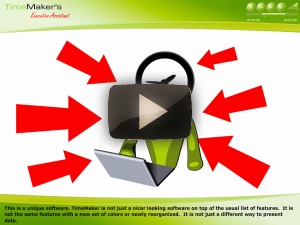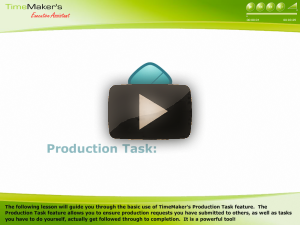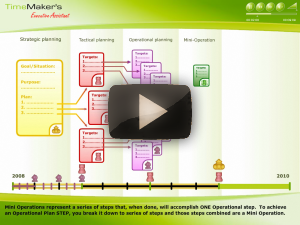Hello! I hope you are enjoying and have been applying the tips you’ve learned so far. This is the 6th of fourteen e-mail tips. It is simple but effective, and we’ve included some helpful videos and the usual do’s and don’ts – enjoy!
Ah… good times… nostalgia… We love these sorts of memories. Imagine life with no memories! This is why our mental records are so important – so we can look back, think about moments, enjoy them and learn from them. But it goes much deeper, and this is what this tip is about.
A person uses his memory to make decisions by referring to past experiences. The better a person’s memory is (meaning his or her record and the ability to access that record), the more data he has to work with and, thus, the better his decisions are.
A person without memory or with an inability to access past experiences will be extremely limited in his abilities – he or she will be slow, confused and will make mistakes. Makes sense, right?
A COMPANY without a memory or with an inability to access its past will be extremely limited in its abilities – it too will be slow and confused.
The company’s memory is composed of its written and spoken communications.
Spoken communication carry the liability of not being recorded and so inevitably bring about misunderstandings (arguments, upsets, things not getting done when you clearly told the person to do it, etc.) – more on the handling of this specific “disease” in future tips.
So, a company should insist that the majority of its communications be written. A company should put up a red flag at any production-related communications which have not been reduced to writing – this has a serious potential of becoming a problem!
To be able to access the written communications of an organization or any group FAST, they should all be filed in a specific, organized manner.
Most of today’s written communications are in e-mail form, and this tip is about how to give the correct solution for managing e-mail communications!
Do not:
Use your inbox or your “Deleted Items” folder as your e-mail storage location and/or archive. Using your inbox as an e-mail storage will eat away your attention units!! Remember? (See “You Touch It, You Play It” tip). Using your inbox as storage or filing will make it hard to find what you need and will slow you down (every time you need to sift through it all, blah blah blah – not good!). Of course, on top of what you’ve received you also have the Sent items folder with all the sent communications.
Clearly the e-mails start adding up quickly and soon you have thousands of e-mails to sift through to find just one – and don’t think search tools will help (sometimes you can’t remember key words, it’s slow, you end up not finding things anyway, etc.)! Again, not good!
Using the Deleted Items folder is not only dangerous (you may lose the data!) but also, since the data is not organized, it will be hard to find and will slow you down.
Do:
1. Create folders based on a subject (for example “Company X’s Contract”) or based on a person’s name and file all related e-mails to that folder. Though it seems like extra work, it is such a time saver and you will be thanking yourself later!
2. Remember to handle junk e-mails or other unnecessary mail CORRECTLY by applying Tip 4, “Annihilating Junk E-Mails Once and For All”.
3. Ensure the e-mail software you are using allows you to easily create filing rules. This is a new, very powerful concept for CORRECTLY filing emails. To understand this better, click here.
4. Lastly, there IS a correct way to deal with Sent Items. Just like paper, the fact its electronic makes no difference – these e-mails should be organized too!
They actually should be filed in the SAME folder as the corresponding received e-mails and should not be stuffed in the Sent Items folder. For example, all mail received and sent to and from Company X should be put in the same Company X folder.
This way, you have a perfect chronological order of all communications in one easy to find, organized location.
Your e-mail software should also do this for you automatically. Again, this is a revolutionary concept. To understand this further, click here.
When these rules are applied you become completely airtight. Everything is sealed and nothing falls through the cracks. Writing cannot be argued with, and when it’s all recorded, stored and easily accessible, you are that much more ahead in being efficient now and for the future.
I look forward to seeing you next week with Tip #7. Please don’t hesitate to let me know if you have any questions, comments or feedback.
Cheers to efficiency, power, money and, of course, well kept memories!
Meir Ezra,
Founder – TimeMaker
This tip was brought to you by TimeMaker – the #1 task and project management software in the world – specializing in saving you time and money.




